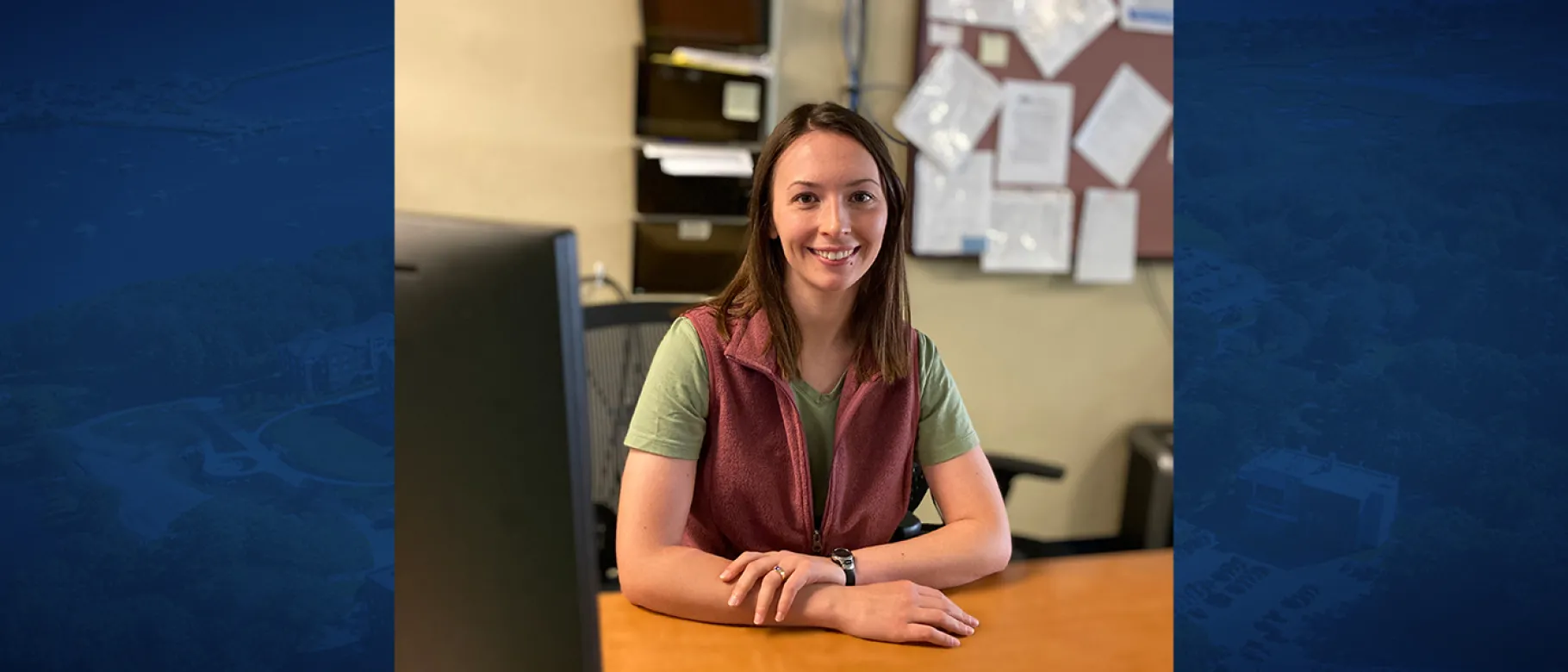Alumni Spotlight: Stephanie Ostrowski ’17, D.P.T. ’20

Inpatient Physical Therapist, Mid Coast Hospital, Brunswick, Maine
Acute Care Physical Therapist, Mercy Hospital, Portland, Maine
UNE Motion Analysis Lab Consultant, Portland, Maine
The Alumni Advancement office interviewed Stephanie Ostrowski ’17 (Applied Exercise Science), D.P.T. ’20, about her UNE experience and her current career.
Describe your career path and key professional choices to this point:
I earned a degree in applied exercise science from UNE, where I was first introduced to the Motion Analysis Lab (MAL). I remember getting a random email for a summer undergraduate research fellowship and thought it would be interesting to do some research. My other option was working in the service industry for the season. I mentioned it to a friend, and they connected me with Michael Lawrence, M.S., assistant program director and assistant teaching professor in the Department of Physical Therapy —and that’s how it all started! After several years doing research in the MAL as an undergraduate student, I became a graduate assistant during my physical therapy studies, and now I am a consultant working with students and faculty on their research.
How did you decide on a career in physical therapy (PT)?
I knew I wanted to be a physical therapist for quite a long time. I am a runner and first learned about PT through my own running injuries. The PT I had was an amazing person; they really listened to me and tried to understand what I was going through. We got to know each other very well — we saw each other multiple times a week for several weeks! Building these relationships is a unique part of the profession of physical therapy. That experience inspired me to want to be the person who listens to, cares for, and is supporting someone else.
What are you doing now as a physical therapist that is surprising?
My role at Mid Coast Hospital has recently involved a large amount of administrative work. The medical documentation system is changing, and the facility needed people to learn the system and train others. I became a credentialed trainer and am teaching others — not just physical therapists, but also nurses, case managers, and others! It has been very different from patient care, and I have enjoyed it.
How did your time at UNE impact you as a student, a person, and a professional?
My UNE experience really shaped who I am as a person and a clinician. I was on the cross-country team where I made many good friends. I participated in a few clubs and have, of course, stayed connected with the Motion Analysis Lab. There were so many opportunities at UNE, so many things to get involved with and choose from, that I didn’t get to experience them all. I picked what interested me and what sounded fun, and it has served me really well.
What advice would you give to current students who may be job searching or graduating soon?
Don’t be afraid to reach out to people. Let people know you are looking for your first job and ask about openings. Just keep your connections and reach out to people. If an opportunity comes up, go for it! It won't be forever, and then you can try something else in the future. Be open to what comes your way.
What is your favorite UNE memory?
I remember preparing for a presentation at a regional meeting for the American College of Sports Medicine, and I was so nervous. I was presenting the research I conducted in the Motion Analysis Lab for an entire summer. I practiced my presentation and had the support of Michael Lawrence to nail everything down. After the presentation, I felt such relief and pride. I am glad I stayed open to that opportunity to try out presenting. Now, I’ve taught a few classes and am much more confident. It gets easier with time.
What are you most proud of?
Something I am really proud of is that I've consistently been a runner throughout all of my college years and now early on in my career. I started running in middle school as a way to build endurance for figure skating. No matter the injuries or competing priorities, I’ve continued to use running as a way to destress and feel balanced, normal. I'm proud of keeping up with it and still keeping my identity as a runner.